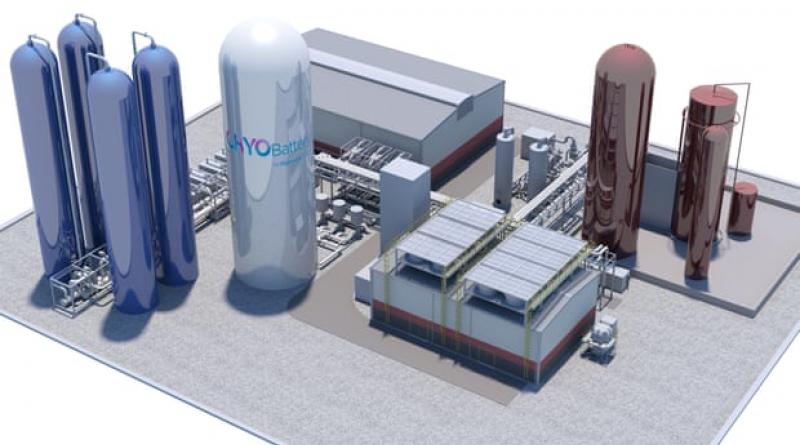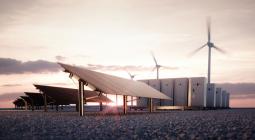UK firm announces plans for first 'liquid to gas' cryogenic battery.

Highview Power claims device will be Europe’s largest energy storage project.
British battery pioneers plan to build Europe’s largest energy storage project using a cryogenic battery that can store renewable energy for weeks rather than hours.
The device will be built on the site of an old fossil fuel plant in the north of England to power up to 50,000 homes for up to five hours.
Unlike traditional lithium-ion batteries, which typically store electricity for a few hours, the “cryobattery” will be able to store energy for months.
The UK’s first full-scale cryobattery, developed by Highview Power, uses renewable electricity to chill air to -196C, transforming it into a liquid that will be stored in large metal tanks.
When renewable electricity levels are low the liquid can be turned back into gas, which is used to turn a turbine and generate electricity – but without burning the gas and releasing emissions.
Highview Power claims its cryobattery will be the largest project in Europe capable of long-term energy storage. The full-scale “liquid air” battery has a capacity of 50MW or 250MWh over a five-hour release time.
It follows the success of a 5MW pathfinder project built next to a landfill site in Bury, Greater Manchester, in summer 2018 with £8m of funding from Innovate UK.

The chief executive of Highview Power said the battery could provide cost-efficient energy storage at old fossil fuel plants across the country to help balance the energy system.
“More and more power plants are going to be decommissioned, and we are bringing a solution which can use the same energy infrastructure and grid connections to give a new life to these sites,” Javier Cavada said.
He added that long-duration, giga-scale energy storage was the “necessary foundation” to help build a carbon-free energy system that relies heavily on wind and solar power.
The global shift towards clean electricity has spurred a boom in battery technology development to help harness wind and solar energy, and a flurry of investment plans from energy utilities.
Highview said the cryobattery would cost about £110 per MWh of electricity, using a 200MW system, which would make it one of the cheapest energy storage technologies.
The claim comes after an Edinburgh-based start-up, Gravitricity, saidBritain’s cheapest virtual battery could be created by hoisting and dropping 12,000-tonne weights down disused mine shafts.
A study by Imperial College London said the gravity energy could cost $171 (£132) per MWh, compared with an average lithium-ion project of $367 (£283) per MWh.
Cavada said the company planned to finalise agreements with its project partner and would secure deals with National Grid to help provide grid balancing services.
He declined to comment on the name of the disused power plant Highview planned to use.
21 October 2019
The Guardian




